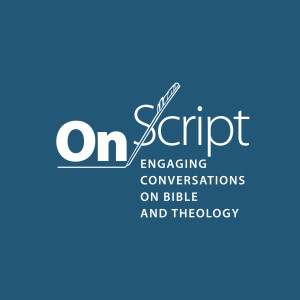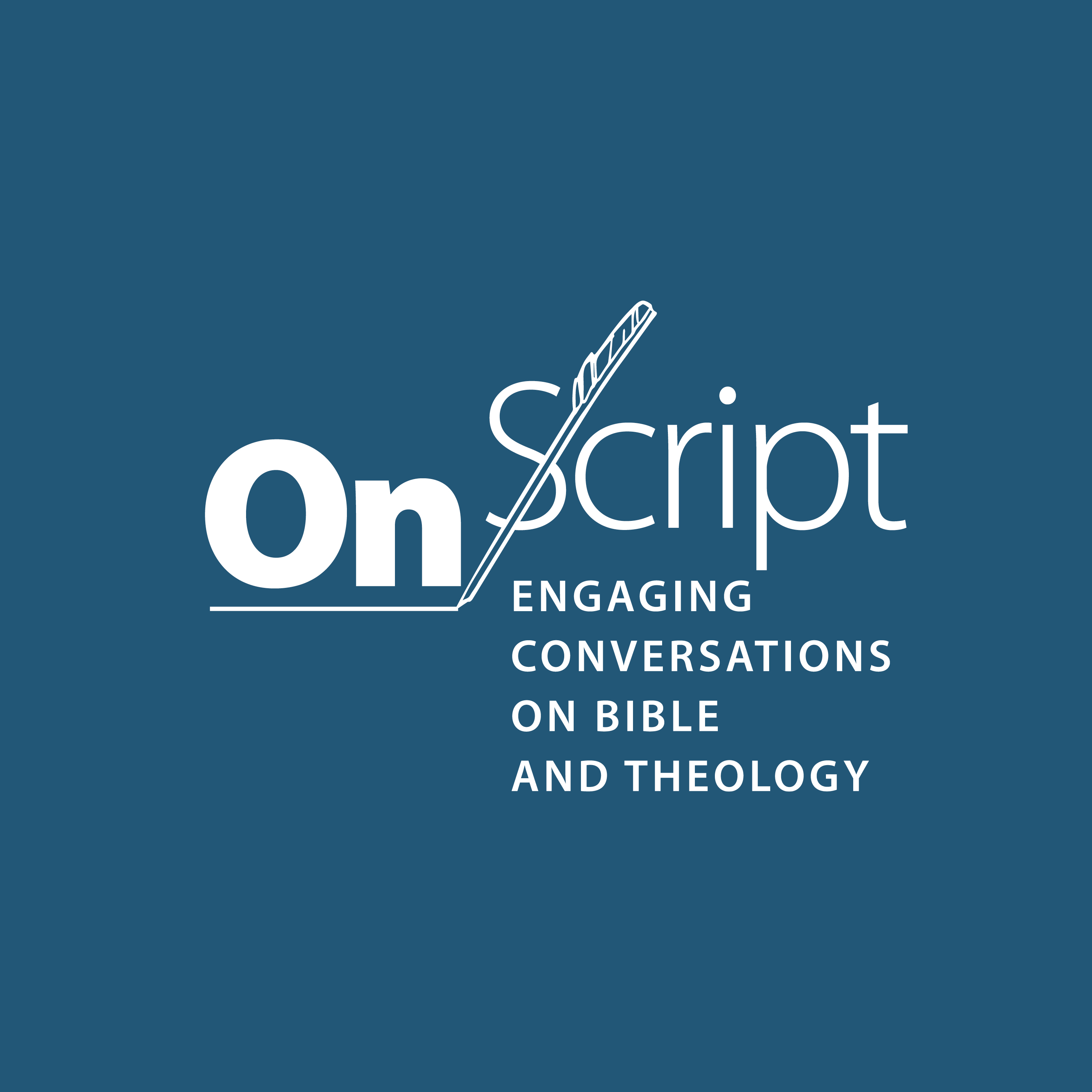Episodes

Monday Aug 15, 2016
Alison Joseph – Portrait of the Kings
Monday Aug 15, 2016
Monday Aug 15, 2016
 Episode: Take a journey into the heart of the Deuteronomist to discover more about the king after God’s own heart through the eyes of the book of Kings. Matt Lynch interviews Alison Joseph about her Manfred Lautenschlaeger award-winning book Portrait of the Kings. As an intro bonus to this episode Matt gives a little 10-minute overview of the Deuteronomistic History, free of charge (but you can skip to get to the good stuff).
Episode: Take a journey into the heart of the Deuteronomist to discover more about the king after God’s own heart through the eyes of the book of Kings. Matt Lynch interviews Alison Joseph about her Manfred Lautenschlaeger award-winning book Portrait of the Kings. As an intro bonus to this episode Matt gives a little 10-minute overview of the Deuteronomistic History, free of charge (but you can skip to get to the good stuff).
Guest: Alison Joseph is a visiting assistant professor of Jewish Studies at Swarthmore College in Pennsylvania. She received the prestigious Manfred Lautenschlaeger Award for Theological Promise in 2016 for her work Portrait of the Kings. She earned her PhD in Hebrew Bible and Jewish Studies from the University of California, Berkeley. She also holds degrees from Emory University, the Jewish Theological Seminary, and Barnard College. She has taught at Haverford College, Towson University, Villanova University, the Jewish Theological Seminary, and Ursinus College.
Book: Alison’s Portrait of the Kings: The Davidic Prototype in Deuteronomistic Poetics is published by Fortress Press, 2016.  Her book examines the rich literary texture of Kings, especially the use of the Davidic ‘prototype’ and its ‘antitype’ in the figure of Jeroboam.
Her book examines the rich literary texture of Kings, especially the use of the Davidic ‘prototype’ and its ‘antitype’ in the figure of Jeroboam.
The OnScript Quip (our review): Alison Joseph’s Portrait of the Kings bridges a divide rarely crossed in biblical studies – the divide between literary and historical critical studies. Drawing inspiration from Robert Alter’s ‘type scenes’ and Frank Moore Cross’ double redaction hypothesis, Joseph observes the importance of the ‘Davidic prototype’ and its Jeroboam ‘anti-type’ in the book of Kings, where each king receives evaluation in terms of his relationship to David’s cultic loyalty. Oddly, David looks different in Kings than in Samuel, leading Joseph to ask, ‘Is David like David?’ Her answer is both creative and convincing, and offers further support for a thesis that the Deuteronomistic History’s first edition hit the shelves during the reign of Josiah, or thereabouts. — Matthew J. Lynch, Westminster Theological Centre, OnScript

Tuesday Aug 02, 2016
David J. Downs – Alms
Tuesday Aug 02, 2016
Tuesday Aug 02, 2016
 Episode: Martin Luther found the sale of indulgences objectionable, so he nailed 95 theses to the door of his bishop’s castle, launching the Protestant Reformation. But where did the idea that giving money could somehow alleviate the human sin problem originate? OnScript host Matthew Bates welcomes David Downs to discuss the biblical and systematic implications of atoning almsgiving. Interviewing from Tanzania (please forgive the occasional authentic Tanzanian background noise!), David’s reflections on charitable giving for the church today is multicultural and profound. His book Alms is certainly highly recommended. Listen. Share. Read.
Episode: Martin Luther found the sale of indulgences objectionable, so he nailed 95 theses to the door of his bishop’s castle, launching the Protestant Reformation. But where did the idea that giving money could somehow alleviate the human sin problem originate? OnScript host Matthew Bates welcomes David Downs to discuss the biblical and systematic implications of atoning almsgiving. Interviewing from Tanzania (please forgive the occasional authentic Tanzanian background noise!), David’s reflections on charitable giving for the church today is multicultural and profound. His book Alms is certainly highly recommended. Listen. Share. Read.
Guest: Dr. David J. Downs is Associate Professor of Biblical Studies at Fuller Theological Seminary. He holds degrees from Clemson, Fuller, and Princeton, having served as a teaching fellow at Princeton and a visiting professor at Holy Cross. In addition to Alms, David has also published The Offering of the Gentiles: Paul’s Collection for Jerusalem in Its Chronological, Cultural, and Cultic Contexts (Mohr Siebeck, 2008; repr. Eerdmans, 2016), as well as numerous journal articles.
 Book: David J. Downs, Alms: Charity, Reward, and Atonement in Early Christianity (Waco, Tex.: Baylor University Press, 2016). Christianity has often understood the death of Jesus on the cross as the sole means for forgiveness of sin. Despite this tradition, David Downs traces the early and sustained presence of yet another means by which Christians imagined atonement for sin: merciful care for the poor. Alms, in the end, illuminates the challenge of reading Scripture with the early church, for numerous patristic witnesses held together the conviction that salvation and atonement for sin come through the life, death, and resurrection of Jesus and the affirmation that the practice of mercifully caring for the needy cleanses or covers sin. Perhaps the ancient Christian integration of charity, reward, and atonement has the potential to reshape contemporary Christian traditions in which those spheres are separated.
Book: David J. Downs, Alms: Charity, Reward, and Atonement in Early Christianity (Waco, Tex.: Baylor University Press, 2016). Christianity has often understood the death of Jesus on the cross as the sole means for forgiveness of sin. Despite this tradition, David Downs traces the early and sustained presence of yet another means by which Christians imagined atonement for sin: merciful care for the poor. Alms, in the end, illuminates the challenge of reading Scripture with the early church, for numerous patristic witnesses held together the conviction that salvation and atonement for sin come through the life, death, and resurrection of Jesus and the affirmation that the practice of mercifully caring for the needy cleanses or covers sin. Perhaps the ancient Christian integration of charity, reward, and atonement has the potential to reshape contemporary Christian traditions in which those spheres are separated.
The OnScript Quip (our review): A broad yet deep study of the atoning power of merciful action in ancient Judaism, the New Testament, and early Christianity, Alms is beautifully written and persuasively argued. Deposit this book in your library’s treasury and generations of readers will be enriched. — Matthew W. Bates, Quincy University, OnScript

